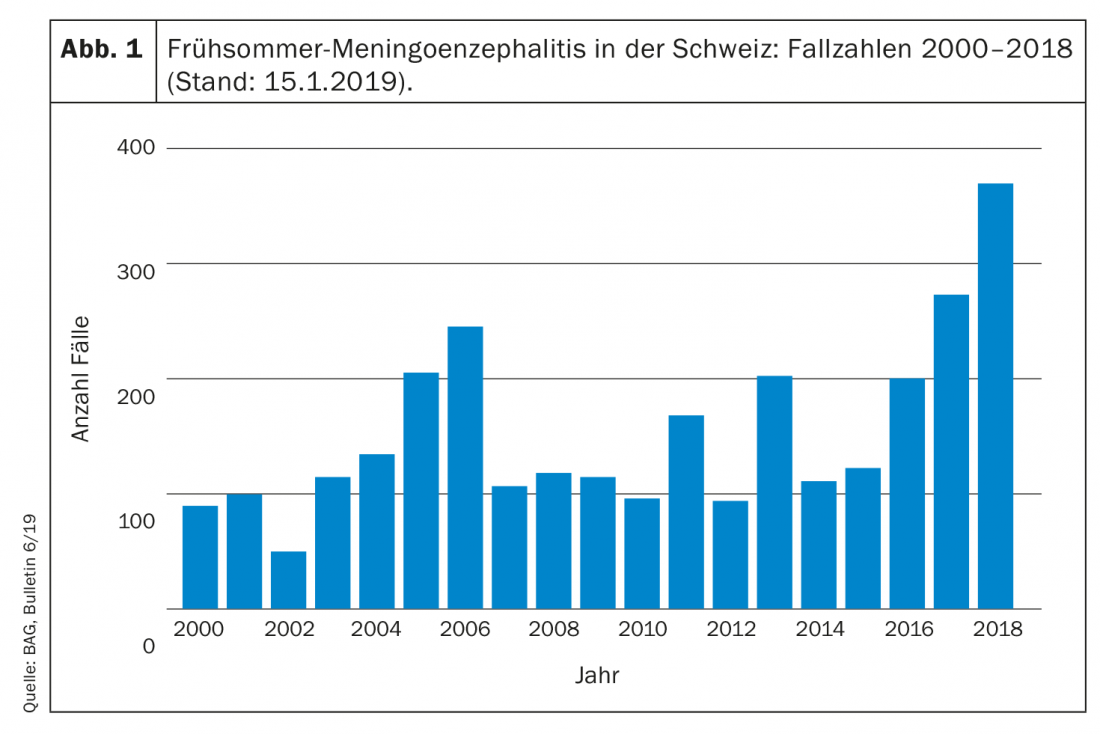The FOPH has issued a warning against TBE infection from tick bites for the spring and summer months of 2019. With the exception of the cantons of Geneva and Ticino, the whole of Switzerland is now considered a risk area.
From 2016 to 2018, there was a marked increase in reported cases of TBE (early summer meningoencephalitis) due to tick bites (Fig. 1) . Possible causes are climate-related on the one hand and behavioral factors on the other. The Zurich University of Applied Sciences Wädenswil has developed a free smartphone app (“Tick”) with information about ticks, their locations and protective measures.
Wearing long pants, closed shoes and using tick sprays can reduce the risk of a tick bite. After spending time outdoors, you should check your body for ticks and, if bitten, remove the tick immediately and disinfect the corresponding area. However, TBE viruses can also be transmitted if the tick is removed quickly.

Vaccination is the most reliable protection against TBE, but is not effective as prophylaxis against Lyme disease. According to the Swiss vaccination schedule, vaccination is recommended for adults and children six years of age and older who reside in one of the risk areas (all cantons except Geneva and Ticino), especially if they are frequently active outdoors. For children under five years of age, the situation must be examined on an individual basis. Vaccination is possible at any time of year, but is ideally done in winter (ticks are less active).
Three doses of vaccine are required for complete basic immunization. Temporary protection is achieved after only two doses of vaccine. The first two doses of vaccine are usually given one month apart. For complete vaccine protection, which ensures vaccine protection for at least ten years with a probability ≥95%, a third vaccination is given 5-12 months (TBE-Immun®) or 9-12 months (Encepur®) after the second vaccine dose, depending on the vaccine. Booster vaccinations are recommended at ten-year intervals. The costs are covered by mandatory health insurance or reimbursed by the employer in the case of occupational exposure.
Source: Federal Office of Public Health (FOPH): Early summer meningoencephalitis (FSME). Bulletin 6/19; 12-14.
HAUSARZT PRAXIS 2019; 14(3): 41











